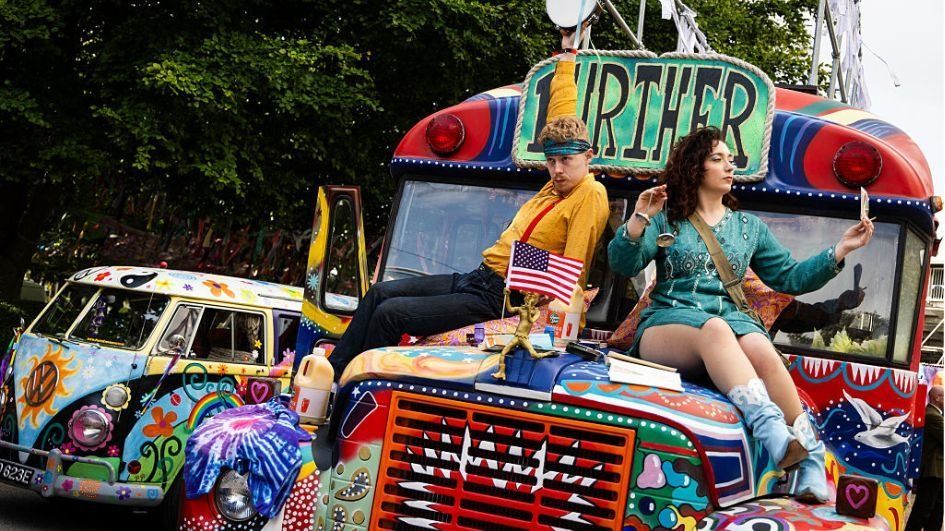

One of the challenges of being a teacher is having to deal with how different young people are not only from yourself but also from whom you had been at the same age.
We expect political opinions, musical taste, and career aspirations to shift from one generation to the next, but with the passing of decades, it becomes harder to pinpoint the forces driving these changes.
It seemed to mean little to my students that modern people were now free to marry or not marry, or to have short-term liaisons or long-term relationships.
Take Generation Z. Most were born after 9-11 and have no real memory of the catastrophic event that brought terrorism and then war to the forefront of public attention. Moreover, Zoomers grew into their teen years shaped less by fears of terrorism and worries about war than by an increasing social liberalism.
By the time the oldest Zoomers, those born in the late 1990s, reached high school, media and educational institutions had discarded any pretense of maintaining neutrality about fundamental ethical and cultural questions in favor of actively promoting progressive stances on issues of race, sexuality, and gender.
Past progressive
Because they came of age in a climate where anything connected to religion, tradition, and middle-class norms could be condemned as backward and oppressive, Gen Z, I have found, has developed a very different relation to the values of liberal progressivism than have previous generations.
Boomers, Gen Xers, and Millennials tend to integrate gay marriage, gender transition, and identity politics into a broader narrative having to do with the continual expansion of freedom. Even when they criticize the excesses of social experimentation, they tend to emphasize the harm caused by excessive personal freedom to the health and well-being of the community.
In other words, regardless of whether one thinks this is a positive development or not, the idea that the U.S., and the rest of the world along with it, has been set on a course of increasing personal choice and expanding individual self-determination has been taken for granted by nearly all.
Vexed by sex
But this past semester, a conversation with the undergraduates in my upper-level seminar hinted that Zoomers are prepared to see these matters quite differently.
I teach at a university in South Korea with a large population of international students. Many of the Korean students have attended international schools which follow an Americanized curriculum and have grown up watching Disney and Pixar films, as well as engaging with social media that also brings them into contact with progressive ideas.
In discussing topics like sexual equality and changes in sexual mores, there was surprisingly little readiness among the students to view the right of women to have careers or the freedom to have sex outside of marriage as the result of an emancipatory political struggle.
Older liberals, of course, believe that these gains were won by fighting against a staid, conformist, and conservative establishment that was dead set against change. The basic liberal narrative divides the bad old days of unquestioning conformity from a present or a future marked by tolerance, openness, and experimentation.
While such a conception of history has been overused in contemporary society, I was shocked to discover how foreign such a way of thinking was to my students.
Freedom rot
When I brought up how much freer individuals are today in comparison to the 19th century, when an adulterous affair could lead to irrevocable banishment from respectable society, the students were hesitant to describe modern sexual mores as liberating. It seemed to mean little to them that modern people were now free to marry or not marry, or to have short-term liaisons or long-term relationships. Instead, they preferred to describe the conditions of their lives in terms that called to mind a “prison.”
What weighs on them is the predicament of living at a time when competition keeps growing ever more intense for the emblems and markers of middle-class affluence that are shrinking in supply. The idea of viewing gay marriage and even gender equality in the manner of the older generation of progressives — as a reassuring sign that the world is becoming more just, free, and equal — seems to offer little in the way of reassurance against the daunting economic realities they feel are bearing down on them.
Who’s the boss?
But it is not only the rising cost of living and the disappearance of economic opportunity that accounts for this change in mindset. What is perhaps just as decisive is the fact that Zoomers are the first generation for whom social justice and identity politics had become entrenched as the governing ideology, in which expressing the wrong views about race, gender, and sexuality could have severe consequences for one’s future.
As much as Zoomers may be convinced that the U.S. and the West committed grave moral wrongs in having colonized or dominated the world, it does not escape their attention that members of victim groups for whom previous generations had extended much sympathy have now become authority figures possessing the power to punish those who deviate from the ideological line.
Thus, Gen Z is much less likely to regard woke progressivism as an emancipatory force that will ultimately improve the lives of all. Rather, they are prone to regard it as a weighty burden that they must bear in order to demonstrate that they are good and moral people.
As with other forms of deontological ethics, it is necessary to uphold political correctness for its own sake, and not because one derives a concrete benefit or advantage from doing so. The psychological burden of carefully controlling one’s speech is the price of living in a diverse and open society, which they feel they have no choice but to accept.
That they feel they have no choice is the consequence of a progressive education, which distorts and effaces the past.
RELATED: The first disembodied generation
 AFP/Getty Images
AFP/Getty Images
Use your illusion
Zoomers might be under far fewer illusions than Millennials about how political correctness actually functions in society, but ask them how diversity and tolerance came to be the most important values, and you are likely to get bewildered looks. Being free of the spell of the emancipatory narrative of liberalism seems to come at the price of not being able to know the story of how one arrived at the grim destination of woke liberal hegemony.
Zoomers are shrewd enough to recognize that the system which seeks to control them is a hodgepodge of prohibitions and freedoms, a mess of license and licenses, and a motley of opiates and superstitions. The insidious aim of their education appears to have been to fill them with so much confusion and uncertainty as to leave them immobilized and at a loss as to how to proceed.
This education has had the effect of making them reticent. Yet, at the same time, Zoomers can show an intense curiosity about the things their education has not taught them or sought to discourage them from learning in the first place.
Described as a cautious group, brought up in a time of ideological conformity that seeks to root out rebellion and independence, Zoomers, especially when approached in a gentle and humble spirit, are likely to embrace as helpful advice the lessons that current-year liberalism wants everyone to forget.
















